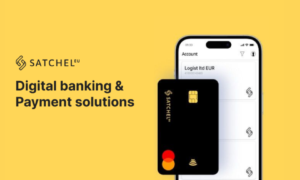In the ever-evolving landscape of business, financial security is paramount. As a business owner, you need to ensure that your finances are protected and managed efficiently. One of the foundational steps in achieving this is selecting the right bank account for your business. However, with a myriad of options available, it can be overwhelming to determine which features are essential. Fear not, as we delve into the ten essential features that your business bank account should have to secure your finances and provide peace of mind.
1. Robust Online Security Measures:
In today’s digital age, cyber threats are a significant concern for businesses of all sizes. Therefore, it’s crucial to choose a bank that prioritizes online security. Look for features such as encryption technology, multi-factor authentication, and real-time fraud monitoring to safeguard your financial data and transactions from unauthorized access and cyberattacks.
2. Fraud Protection Services:
Fraudulent activities can wreak havoc on your business’s finances and reputation. Opt for a bank that offers comprehensive fraud protection services to detect and prevent fraudulent transactions. These services may include transaction alerts, identity verification protocols, and zero-liability policies to protect your business from financial losses due to fraudulent activity.
3. Secure Account Authentication:
Ensuring that only authorized personnel have access to your business bank account is essential for maintaining security. Choose a bank that offers secure account authentication methods, such as biometric authentication, token-based authentication, or one-time passcodes. These additional layers of security help prevent unauthorized access and minimize the risk of account breaches.
4. Data Encryption:
Protecting sensitive financial information is paramount in today’s data-driven world. Select a bank that employs robust data encryption techniques to safeguard your account information during transmission and storage. Encryption scrambles data into unreadable formats, making it virtually impossible for unauthorized parties to intercept or access your sensitive information.
5. Regular Security Updates and Patches:
Cyber threats are constantly evolving, requiring banks to stay vigilant and proactive in their security measures. Choose a bank that regularly updates its systems and software to address emerging security vulnerabilities and patch potential loopholes. Regular security updates ensure that your business bank account remains protected against the latest cyber threats and vulnerabilities.
6. Dedicated Fraud Monitoring Team:
Having a dedicated fraud monitoring team can provide an additional layer of security for your business bank account. Look for banks that employ skilled professionals to monitor account activity, detect suspicious transactions, and investigate potential fraud attempts. A proactive fraud monitoring team can identify and mitigate threats before they escalate, minimizing the impact on your business’s finances.
7. Account Activity Alerts:
Stay informed about your account activity and potential security threats with account activity alerts. Choose a bank that offers customizable alerts for account balance changes, large transactions, and unusual account activity. These alerts notify you promptly of any suspicious or unauthorized transactions, allowing you to take immediate action to protect your finances.
8. Secure Mobile Banking:
Mobile banking offers convenience and flexibility but also introduces security risks if not properly protected. Select a bank that offers secure mobile banking apps with built-in security features such as biometric authentication, encryption, and device recognition. Secure mobile banking ensures that you can access your account on the go without compromising the security of your financial data.
9. Liability Protection:
In the unfortunate event of a security breach or fraudulent activity, liability protection provides added financial security for your business. Choose a bank that offers liability protection policies, such as zero-liability guarantees or fraud reimbursement programs. These policies protect your business from financial losses resulting from unauthorized transactions, giving you peace of mind in the event of a security incident.
10. Compliance with Regulatory Standards:
Ensure that the bank you choose complies with industry regulations and standards for financial security and data protection. Look for banks that adhere to regulatory requirements such as the Payment Card Industry Data Security Standard (PCI DSS) and the General Data Protection Regulation (GDPR). Compliance with these standards demonstrates a commitment to maintaining the highest levels of security and privacy for your business’s financial data.
Conclusion:
Securing your business’s finances starts with choosing the right bank account that prioritizes security and protection. By selecting a bank with the essential features outlined above, you can safeguard your financial assets, mitigate risks, and protect your business from potential threats. Take the time to research and compare different banks and their security offerings to find the perfect fit for your business. With a secure bank account in place, you can focus on growing your business with confidence, knowing that your finances are well-protected.



































